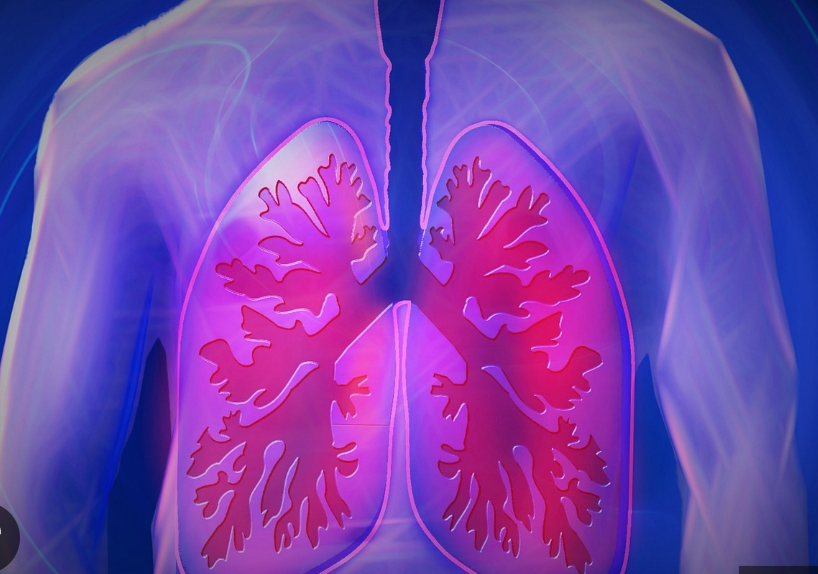“Unlock The Future of Lung Cancer Treatment with AI-Powered Biomarkers!”
Introduction
Researchers have recently made a breakthrough in the field of cancer research. They have discovered a new AI-based biomarker that could potentially predict the response to immunotherapy in lung cancer patients. This is an important step forward in the fight against cancer, as it could help physicians to provide more targeted treatments that are tailored to the individual needs of their patients. This biomarker could also lead to improved outcomes in terms of overall survival rates and quality of life. In this article, we will discuss the details of this new AI-based biomarker and its potential implications for lung cancer patients.
The Potential of Artificial Intelligence and Machine Learning in Predicting Responses to Immunotherapy in Lung Cancer Patients
Immunotherapy has become a promising and increasingly commonly used treatment option for lung cancer patients. Artificial intelligence (AI) and machine learning (ML) are emerging technologies that can potentially be used to improve the precision of immunotherapy response predictions in this patient population.
AI and ML are based on algorithms that “learn” and improve with experience, and can be used to analyze large amounts of data. This data can include patient medical records and imaging results, as well as information about the type and severity of the lung cancer. By mining this data, AI and ML can identify patterns that can then be used to predict responses to immunotherapy.
AI and ML can also be used to identify biomarkers that can be used to predict patient responses to immunotherapy. These biomarkers can include genetic variations, proteins, and other molecular features that can be used to identify which patients are likely to respond to a particular treatment. AI and ML can also be used to identify new combinations of biomarkers that could potentially be used to improve the accuracy of immunotherapy response predictions.
In addition, AI and ML can be used to develop personalized treatment plans for lung cancer patients. By analyzing patient data, AI and ML can identify the most effective treatment options for each individual patient, based on their medical history and current condition. This data-driven approach could help to maximize the effectiveness of immunotherapy treatments and potentially improve patient outcomes.
The potential of AI and ML in predicting responses to immunotherapy in lung cancer patients is enormous. As these technologies continue to evolve, they could potentially revolutionize how immunotherapy is used in the treatment of this disease.
How AI-based Biomarkers Could Lead to New and Improved Treatments for Lung Cancer
The use of artificial intelligence (AI)-based biomarkers is a promising new tool for the diagnosis and treatment of lung cancer. AI-based biomarkers can provide more precise and accurate data about the disease compared to traditional methods, and this data can be used to develop treatments with greater efficacy and safety.
AI-based biomarkers use machine learning algorithms to analyze large amounts of data from a variety of sources, including medical records, imaging scans, and gene expression profiles. These algorithms can identify patterns in the data that can be used to predict the risk of disease progression and identify potential targets for therapeutic intervention. For example, AI-based biomarkers can be used to identify biomarkers associated with a particular type of lung cancer, allowing for personalized treatment plans tailored to the individual patient.
AI-based biomarkers can also be used to monitor the effectiveness of treatment and predict which treatments are likely to be most effective. This can help reduce the amount of trial and error in developing new treatments, allowing them to progress more quickly and efficiently. Additionally, AI-based biomarkers can be used to identify potential side effects of treatment, enabling clinicians to adjust their treatment plans accordingly and reduce the risk of adverse effects.
The use of AI-based biomarkers for lung cancer has the potential to revolutionize the way the disease is treated and monitored. By providing more precise, accurate data about the disease, AI-based biomarkers could lead to the development of new, improved treatments that are tailored to the individual patient. This could ultimately lead to better outcomes for patients with lung cancer and improved quality of life.
Exploring the Different Types of Immunotherapies Used to Treat Lung Cancer and Their Potential Benefits
Lung cancer is among the leading causes of cancer-related death worldwide, and new treatments are constantly being developed to help improve the quality of life for those living with the disease. Immunotherapy is one such treatment that has been gaining traction in the fight against lung cancer. Immunotherapy is the use of substances to stimulate or suppress the immune system to fight disease.
Immune checkpoint inhibitors are a type of immunotherapy used to treat lung cancer. These therapies block specific proteins on the surface of cancer cells that are responsible for suppressing the immune system from recognizing and attacking the cancer. By inhibiting these proteins, such as PD-1 or CTLA-4, the immune system can better recognize and attack the cancer cells, leading to a stronger anti-tumor response.
CAR-T immunotherapy is a newer approach to treating cancer. It involves collecting a patient’s own T cells, a type of white blood cell that helps fight infection, and genetically engineering them to recognize and attack the cancer cells. Once modified, the T cells are reintroduced into the patient’s body where they can target and destroy the cancer cells.
Vaccines are another type of immunotherapy used to fight lung cancer. These vaccines work by stimulating the body’s own immune system to recognize and attack the cancer cells. Vaccines can be used as a preventative measure to help stop cancer from developing, or they can be used to help reduce the progression of an existing tumor.
Lastly, adoptive cell transfer (ACT) is a form of immunotherapy used to treat lung cancer. This approach involves taking cells from a patient’s tumor, growing them in a laboratory, and then reintroducing them into the patient’s body. These cells are then able to better recognize and attack the cancer cells.
The potential benefits of immunotherapy for lung cancer patients are numerous. These therapies can help reduce the side effects associated with traditional treatments, such as chemotherapy and radiation, and can also increase survival rates. Additionally, immunotherapy has been shown to be effective in treating many types of cancer, including those that have become resistant to other treatments.
Overall, immunotherapy has demonstrated promising results in treating lung cancer and has the potential to greatly improve the quality of life for those living with the disease. While more research is needed to explore the full benefits of immunotherapy, current studies suggest that it is a viable option for those looking for a more effective treatment for lung cancer.
How AI-based Biomarkers Could Personalize Treatment Options for Lung Cancer Patients
Lung cancer is one of the leading causes of cancer-related deaths in the world and its treatment options can vary widely depending on the individual patient. Recent advances in artificial intelligence (AI) have allowed researchers to develop AI-based biomarkers that could revolutionize the way we diagnose and treat this deadly disease.
Biomarkers are biological indicators that can be used to measure the effectiveness of a treatment. AI-based biomarkers use machine learning algorithms to analyze data such as medical imaging, patient histories, and genetic information to find patterns in the data that can help predict how an individual patient is likely to respond to a particular treatment. By personalizing treatment options based on these AI-based biomarkers, clinicians could significantly improve outcomes for lung cancer patients.
AI-based biomarkers also offer the potential for more accurate diagnosis. By analyzing patient data, AI-based biomarkers can detect signs of lung cancer earlier than traditional methods. This could mean earlier diagnosis and treatment for lung cancer patients, leading to improved outcomes.
AI-based biomarkers could also help clinicians develop more tailored treatments for individual patients. By analyzing data from a patient’s medical records and genomic data, AI-based biomarkers can identify the most effective treatment options for that individual. This could mean more effective treatments, fewer side effects, and improved overall outcomes for lung cancer patients.
AI-based biomarkers are a promising new tool for personalizing treatments for lung cancer patients. With further research, AI-based biomarkers could revolutionize the way we diagnose and treat this deadly disease, leading to improved outcomes for lung cancer patients.
What the Latest Research Says About AI and Its Potential to Improve Early Detection of Lung Cancer
Recent research indicates that artificial intelligence (AI) has the potential to improve early detection of lung cancer. AI-powered solutions have been applied to medical imaging, such as chest X-rays, in order to detect suspicious lesions that could indicate a potential cancer.
AI-based algorithms have been trained to identify these lesions by analyzing the characteristics of healthy tissue and cancerous tissue. The algorithms are able to detect subtle variations in the texture, shape, and size of the tissue, which can help in diagnosing lung cancer earlier.
These AI-based algorithms have been tested in various clinical studies and have been found to be more accurate than traditional methods of detecting lung cancer. In one study, AI-based algorithms were able to detect lung cancer with an accuracy of over 90%, which is significantly higher than the accuracy of the traditional methods.
AI-based algorithms can also be used to detect other types of cancer, such as breast cancer. In one study, AI-based algorithms were used to detect breast cancer with an accuracy of over 95%. This accuracy rate is much higher than the accuracy rate of traditional methods.
AI-based solutions also have the potential to reduce the cost of lung cancer detection. AI-based algorithms can process large volumes of data quickly and accurately, which can lead to faster and more accurate diagnoses. This can reduce the amount of time and money spent on testing, which can ultimately lead to lower healthcare costs.
AI-based solutions have the potential to revolutionize the way lung cancer is detected and treated. However, more research is needed before these solutions can be implemented on a large scale. As AI-based solutions continue to improve, they may eventually become the standard for early detection of lung cancer.
Conclusion
In conclusion, Researchers have found a new AI-based biomarker that could potentially predict the response to immunotherapy in lung cancer patients. This new biomarker has the potential to revolutionize the treatment of lung cancer and could potentially improve outcomes for patients. It is hoped that further research and clinical trials will continue to confirm the efficacy of this biomarker and that it will soon become available for use in clinical practice.


